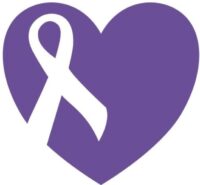November is National Alzheimer’s Disease Awareness month. There are currently over 5 million Americans affected by this incurable disease and 38,000 of them are in Idaho. This number is also rising steadily with our growing elderly population and according to the Alzheimer’s Association the disease may reach up to 16 million by 2050. Many of us probably know or are currently caring for a loved one affected by this terrible disease, and understand very well the daily difficulties and frustrations of the disease and the feelings of loss as the person you love slowly vanishes.
Because Alzheimer’s disease is in fact a disease- it is not part of the ‘normal’ aging process. Brain cell synapses lose the ability to connect and then die. This cell death affects areas of the brain related to memory, learning, cognition, and eventually organ functions for those affected by the disease. The disease progression can last for many years. Individuals, friends, or family will often find it difficult in the beginning to know the difference between normal age-related forgetfulness vs. Alzheimer’s disease. “I lost my keys” is pretty normal for many- even on a daily basis, but “I lost my keys and don’t remember what I’m looking for or where I am” is not normal.
According to the Alzheimer’s Association there are ten early warning signs that should be watched for and are related to Alzheimer’s disease or other dementias:

- Memory loss that disrupts your daily life.
- Challenges in planning or solving problems.
- Difficulty completing familiar tasks at home, work, or leisure.
- Confusion with time or place.
- Trouble understanding visual images and spatial relationships.
- New problems with words in speaking or writing.
- Misplacing things and losing the ability to retrace steps.
- Increased poor judgment.
- Withdrawal from work or social activities.
- Changes in mood and personality.
People may experience one or more of these in varying degrees and they should be discussed with your health care provider along with a full and complete physical for the most accurate diagnosis and treatment options available.
The Alzheimer’s Association also has a very helpful website at www.alz.org with a lot of great specific information for those diagnosed with Alzheimer’s disease and tips for caregivers. We highly recommend that if you need help or guidance for you or a loved one that you check out the website and speak with your provider for care options that will work best for your situation.
Alzheimer’s disease is a very difficult and frustrating condition for patients and caregivers, but a better understanding of the disease process and care options may help an already strenuous situation seem manageable. So make this month a priority to learn more about the disease, help out a loved one (or caregiver) with Alzheimer’s, or make a donation to help in the fight to find a cure.
